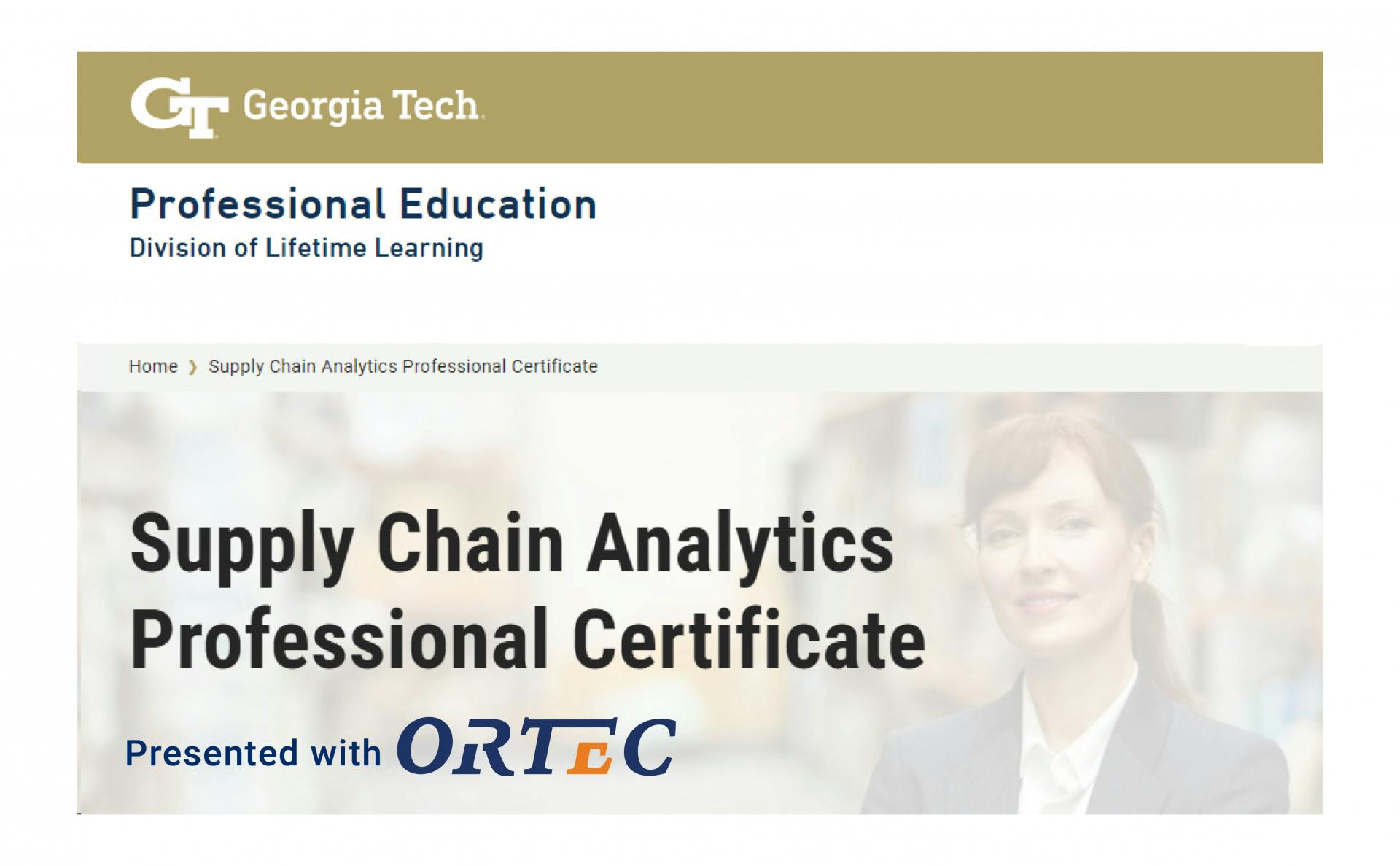The current digital era offers more opportunities than ever to support SCM with data-driven decision making. These opportunities cover the entire analytics maturity curve: from visibility to diagnosis and from forecasting to advanced planning. Applying all types of analytics (descriptive, diagnostic, predictive, and prescriptive) to SCM maximizes the value of supply chain data. Supply chain analytics further allow organizations to tackle more strategic business goals and address the full complexity of their supply chains.
SCM professionals and stakeholders of all levels will benefit from this program. Participants will learn about the dynamics of a supply chain, the most relevant business and planning challenges, and the analytics tools and techniques to address them. They will explore the key concepts for working with SCM data while getting hands-on experience. Lecturers from Georgia Tech and consultants from ORTEC will cover both the theoretical and practical skills to efficiently conduct analytics and optimization to meet SCM needs.
The certificate program consists of four courses that align the types of analytics with aspects of supply chain management. Participants can take all the courses (required to earn the certificate) or pick the ones most relevant to their own organizations and personal development. The courses are delivered as virtual sessions and are spread out over the calendar year. Each online course will consist of four half-day webinars held on consecutive days. Contact us for class dates and enrollment information.
The program centers around the case of the Cardboard Company, a fictional organization based on real companies with whom ORTEC has worked. Participants will explore the dynamics of the company and be challenged to improve its performance. Through descriptive and diagnostic analytics in the first two courses, they will develop insights on underachieving metrics to develop quantifiable solution strategies that align with the company’s business strategy. Participants will build dashboards to display descriptive analytics and convey the results of diagnostic analytics. In the final two courses, they will use predictive and prescriptive analytics to build forecasting and anomaly detection models and optimize the Cardboard Company’s production and routing designs.
- Transforming Supply Chain Management and Performance Analysis
The first course covers the power of using analytics to improve supply chain management processes and the descriptive analytics used to identify the starting point. Participants will leave the course knowing how to gather, analyze, and prepare data before digging into deeper analytics applications.
----- - Creating Business Value with Statistical Analysis
The second course emphasizes using operational performance metrics to align SCM with strategic goals. Participants will employ statistical concepts to develop inventory management models. They will use diagnostic analytics to conduct demand and service profiling, undertake root cause analysis, and create time series forecasts.
----- - Machine Learning Applications for Supply Chain Planning
The third course introduces the field of machine learning, an area where algorithms learn patterns from data to support proactive decision making, as it applies to SCM. Participants will then use machine learning to conduct predictive analytics as they forecast future demand, develop inventory policies, perform customer segmentation, and conduct predictive maintenance.
----- - Supply Chain Optimization and Prescriptive Analytics
The final course incorporates advanced analytics and mathematical optimization to find solutions for supply chain problems. The course will cover using linear programming, mixed integer programming, and heuristics to conduct prescriptive analytics related to production processes, distribution networks, and routing. This course also serves as a capstone for the certificate program by culminating in a hackathon where participants will design networks, inventory policies, and scenarios and then evaluate the outcomes via simulations.
-----
Throughout the program, participants will conduct all four types of analytics using Python and Power BI. While previous experience with these platforms is encouraged, instructors will ensure participants are comfortable with the technology before the courses begin. The courses will be focused on SCM content, not on coding.
Want to learn more or register for a class?
